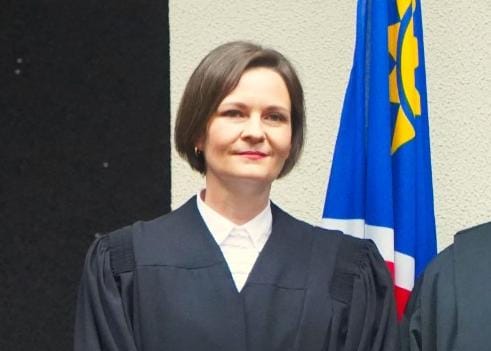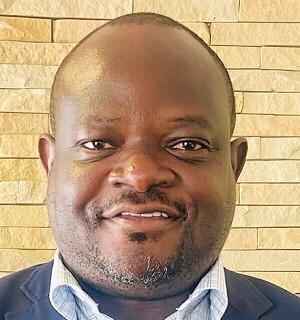The Ministry of Education, Arts and Culture will no longer recruit graduates whose qualifications do not indicate a specialisation for teaching the junior primary phase (pre-primary to Grade 3).
This also affects graduates with teaching qualifications not specifying the medium of instruction a teacher was trained and certified to teach in.
This comes after the ministry withdrew the formal education circular 3 of 2019 on junior primary teaching posts in state schools, issued last week.
The ministry’s decision will affect graduates and students at institutions such as the Namibia College of Open Learning (Namcol), the Institute for Open Learning (IOL) and the International University of Management (IUM).
The Namcol-affected courses include: the diploma in early childhood and pre-primary education level seven, the certificate in education for development level four, diploma in education for development level six, and the certificate in early childhood development level five.
Other affected courses include the diploma in education (pre- and junior primary) level seven (IUM), IUM’s bachelor of education in pre- and junior primary education honours level eight, IOL’s diploma in pre-primary level seven, IOL’s diploma in junior primary education level seven, and IOL’s junior primary teacher education diploma level six.
DISAPPOINTED

Student Union of Namibia (SUN) president Benhard Kavau has expressed disappointment with the ministry’s decision.
“It seems there is a lack of cooperation between them and the Namibia Qualifications Authority,” he says.
He says the ministry should consider recruiting qualified teachers using academic records, which he says indicates their specialisations.
“That directive basically means the graduates who have obtained their degrees but their specialisations are not written on the degree will not be considered for recruitment,” Kavau says.
The union requested the ministry to consider recruiting the affected graduates while negotiations continue.
Some Namcol graduates took to social media, with some demanding refunds and calling for a demonstration.
Among them is Sheefeni Victory, who says the college must refund the students.
Another one, identified as Tashiya, says students must stand together and protest.
“This is not good, especially for those doing the diploma or have already obtained the diploma. This is a waste of students’ time and money,” she says.
Monica Sakeus says the matter requires swift intervention or else students will settle the matter in court.
SEEKING CLARIFICATION
In a notice to students on Thursday, Namcol acting chief executive Albert Kulobone said the college is aware of the directive, which he said is distressing and may have raised concerns among students.
“Namcol has learned about the directive issued by the ministry stating that diploma in early childhood and pre-primary education graduates from Namcol will no longer be considered for employment as teachers. First and foremost, we want to emphasise that this directive does not diminish the value of your education, your hard work or your potential,” Kulobone said.
He said the college is actively seeking clarification from the ministry.
However, IUM spokesperson Gerry Munyama says the programmes referred to have been approved and accredited by the NQA and the ministry.
WHAT HAPPENED
Education circular 3 of 2019 says some professional teaching qualifications from certain teacher training institutions do not indicate the appropriate phase or area of specialisation.
“The above mentioned situation has created serious challenges for the ministry when it comes to determining the suitable placement of teachers in the junior primary phase,” the circular says.
The ministry clarified on Thursday that the directive comes in response to ongoing developments, since the initial directive was issued in 2019.
“The ministry is committed to ensuring that the recruitment of junior primary phase teachers meets the current educational standards and requirements, and more so, to lay a strong foundation from the pre-primary and junior primary phases. Future recruitment guidelines will replace the 2019 stipulations and will be drawn up in a consultative manner within the existing legal provisions,” the ministry said.
WAY FORWARD
The ministry said an applicant should only be considered for appointment on a permanent basis in the junior primary phase if the medium of instruction for the school is the same as the language subject that was offered in the secondary phase academic qualification.
“An applicant who has, for example, offered Afrikaans as a language subject in the secondary phase, should be considered for appointment to teach using Afrikaans as a medium of instruction on a permanent basis, on condition that they obtained an A, B, C, D, E, F or G grade, and this grade appears on the school leaving certificate,” the ministry said.
According to the ministry, some teacher training institutions offer pre-primary or junior primary education qualifications without specifying the grades a teacher is trained and certified to teach.
“A qualification titled as such might be interpreted as a professional teaching qualification for the pre-primary grade only, instead of being interpreted as a professional teaching qualification for junior primary phase,” the ministry said.
Stay informed with The Namibian – your source for credible journalism. Get in-depth reporting and opinions for
only N$85 a month. Invest in journalism, invest in democracy –
Subscribe Now!





